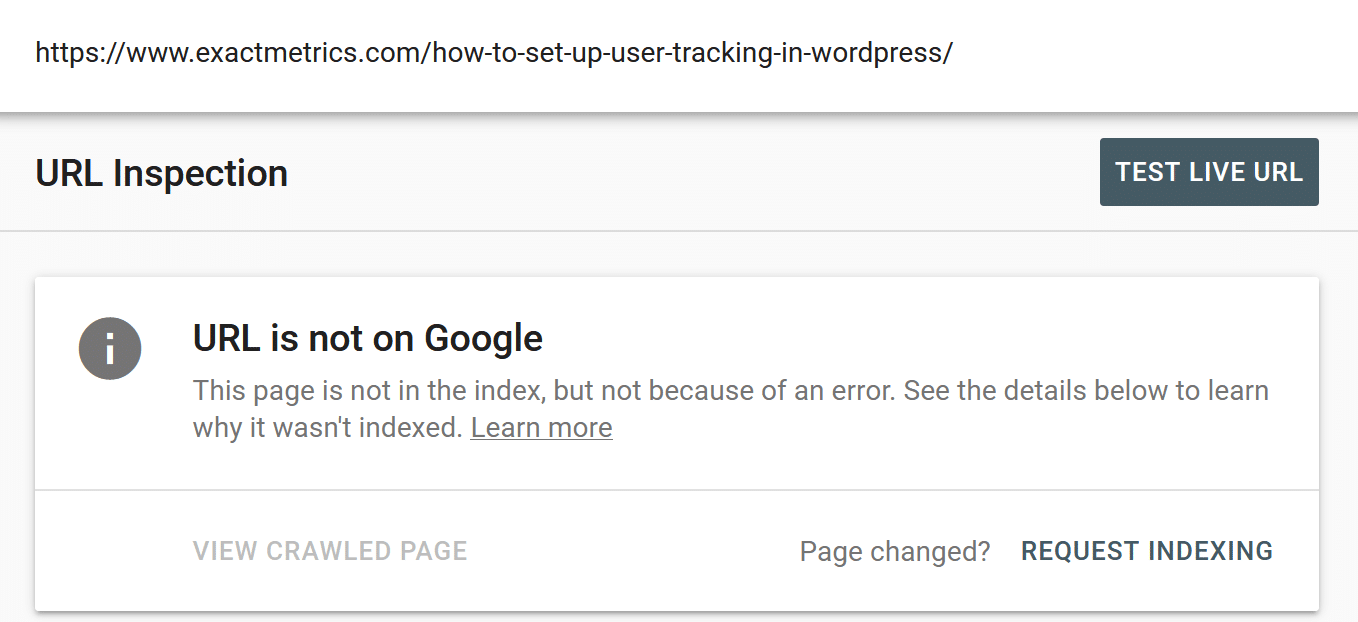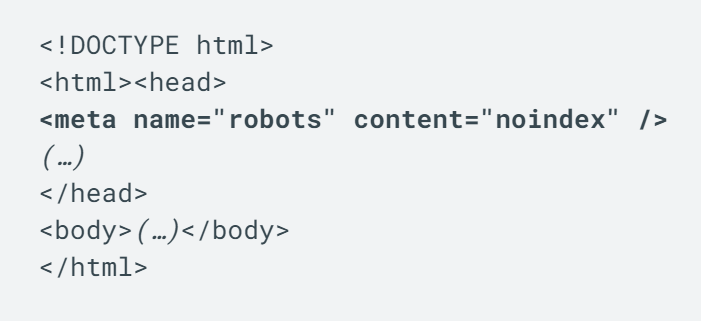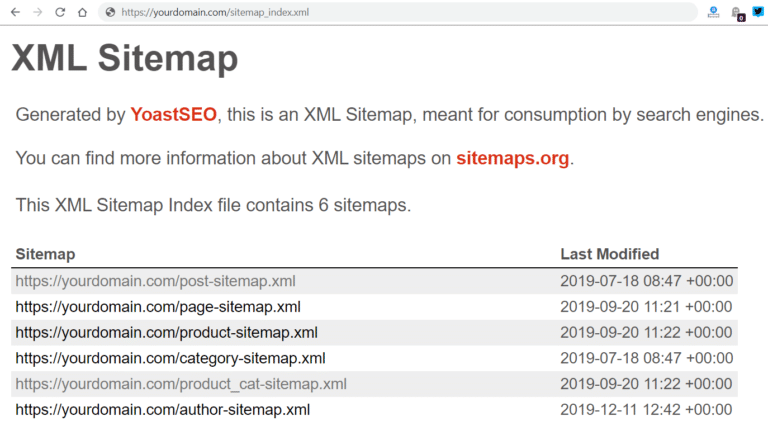Are you wondering, how to get Google to index your site? If your website isn’t showing up on Google search results then it could be that your webpages aren’t being indexed.
This is a common issue that many new business owners face. Google works by first crawling your website by following different links and storing your pages in its database.
But when it doesn’t index your pages, you’ll see that your organic traffic will be zero. So, is there a workaround for this problem?
In this article, we’ll show you different ways to get Google to index your site faster. Let’s begin…
What is Google Index?
Now, to understand what is Google Index, imagine that you’re in a library. There you’ll find a list of books available in the library. Google index is just like that list, but instead of books, you’ll find webpages.
So long story short, you can think of Google Index as a database that contains all the websites on the internet. Whenever someone searches for your website, Google will look for it in its index and then display your site.
It’s that simple.
But how do you know if Google has already indexed your site or not? Let’s find out…
Check If Your Website is Indexed by Google
There are two ways you can check your website’s indexing on Google. First, look up your webpage on Google, and second, use Google Search Console. We’ll explain both these methods.
Perform a Google Search
To check if Google is indexing your webpages, you can start by simply performing a Google search. Just enter the URL of your website or webpage and see if it appears in the results.
You can also narrow down your search using Google search operators. Let’s say you want to check if your new blog post is indexed. Enter site:www.yourwebsite.com/my-blog-post in Google and if it appears in the search engine page results, then it means Google has indexed your webpage.

Use Google Search Console
Another way to check if Google is indexing your website is to use Google Search Console. It’s a free tool that shows how your site is performing on the search engine.
In your Google Search Console, go to URL Inspection from the options on your left. Then enter the URL of your website or blog post and if you get a message saying URL is not on Google, then it means the search engine hasn’t indexed your webpage.

Now, are you ready to learn different ways you can get your site indexed on Google?
How to Get Google to Index Your Site
Here are some simple and proven ways of getting your webpages indexed by Google, so they appear in the search results and you don’t lose any organic traffic.
1. Request Indexing in Google Search Console
If your website isn’t appearing on Google then you can use the Request Indexing option in Google Search Console. This tells Google that you’ve published a new blog post and it should take a look. This is perhaps the easiest and quickest way of getting your pages indexed.
And the steps are straightforward, as all you have to do is enter the URL in the URL Inspection option and if it says URL is not on Google, just click the button saying Request Indexing. Google will then queue your webpage for indexing and you’ll see the following message.

That said, indexing issues can go deeper, and to resolve them, let’s look at more ways.
2. Remove Noindex Tags from Webpages
One of the reasons why Google isn’t crawling and indexing your pages is that you have “noindex” tags on your web pages. These tags tell Google that you don’t want it to index the page and show it on its search results.
So, to get your pages to index quickly on Google, make sure you remove these tags. And do that, go to the <head> section of your website and check if the page has no-index tags. Then, simply remove the tag.

3. Create an XML Sitemap & Include Important Pages
Does your website have a sitemap? No? Then you should definitely have one!
An XML sitemap tells Google which pages are important on your website and which aren’t. If a webpage isn’t indexing on search engines, then you can include them in the sitemap. This will tell Google that the page is valuable and it should appear in the search results.
A sitemap also helps search engine crawlers to find new content and index them. It provides a navigation path for the crawler, so it can easily go through your site.

In short, a sitemap quickens your process of indexing. And the best part, you can submit your sitemaps to Google and Microsoft (Bing). This way you can ensure that your site gets indexed.
If you don’t have a sitemap yet, then you can start by following this guide on how to create a WordPress sitemap.
4. Internal Links from Authoritative Pages
Another way of speeding up the process of indexing is by internal linking your posts with other authoritative pages on your site.
To understand why internal linking is important, you should know how Google works. It’s bots (or crawlers) discover content by following different hyperlinks on your site.
So, internal linking your posts from other pages that get a lot of traffic can improve your site’s indexing.
But don’t forget, the pages you internal link should be relevant to each other. For more detail, you can follow this guide to SEO link building.
5. Delete Nofollow Tags from Internal Links
When you’re internally linking to other pages, make sure they don’t have the nofollow tag.
A nofollow tag tells Google and other search engine bots to ignore those links when crawling. As a result, Google will not follow the path to those links and won’t index them.
So, to overcome this issue, look for rel=”nofollow” tag in your links and remove them.

6. Build High-Quality Backlinks
While internal links are useful for your inner web pages, having high-quality backlinks can also get Google to index your site faster. Since Google works by following hyperlinks, backlinks also help search engine bot to discover your website and its content.
And if you can get backlinks from authoritative websites, then you have a higher chance of indexing your webpage quickly.
But do we mean by high authority websites?
Well, these are domains that have expertise in their subject area or they have high domain authority. For instance, news websites like CNN, sports websites like ESPN, or any governmental organization are examples of authoritative websites.
So, backlinks from such websites show that your content is trustworthy and useful. And Google will give importance to your pages and rank them higher.
7. Get Rid of Crawl Blocks in Your Site’s Robots.txt File
You can also speed up your site’s indexing by checking the robots.txt file and removing any crawl blocks.
A robots.txt file tells search engine bots where they can go on your website. You can restrict certain parts of your site from crawling and indexing by specifying them in this file.
But at times crawl blocks can stop Google from indexing your entire site. To remove them, enter robots.txt at the end of your site’s URL (www.example.com/robots.txt). Next, you need to remove any code that says Disallow: /your-web-page.

You can follow this guide on how to optimize your WordPress robots.txt file for SEO.
8. Remove Duplicate Pages on Your Website
If you have duplicate pages on your website, then you might be confusing the search engine. As a result, it won’t know which page to index.
This will result in slow indexing or not indexing your web pages at all.
So, make sure that all your pages are original and there is no duplication. If there are duplicates, remove those pages or redirect them to the page you want to index.
And that’s it!
We hope you liked our article on ways to get Google to index your site faster. We think you’ll also enjoy 5 Ways to Skyrocket Your SEO Rankings with Google Analytics.
And don’t forget to follow us on Twitter and Facebook for the latest Google Analytics tutorials.

